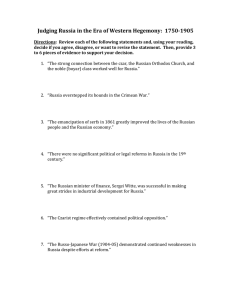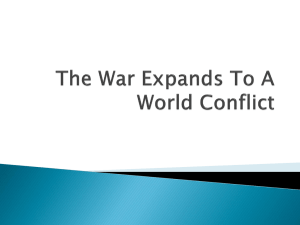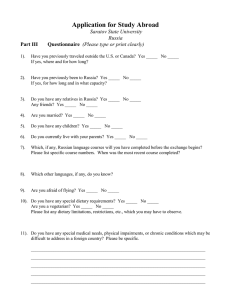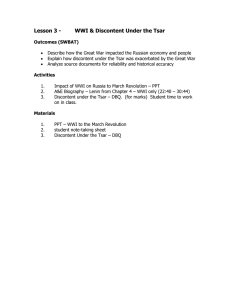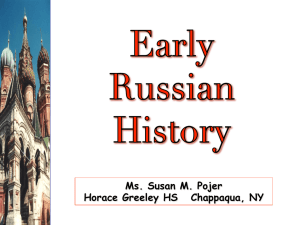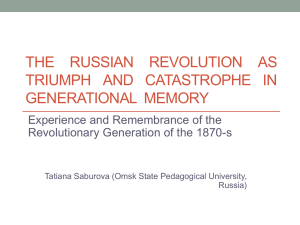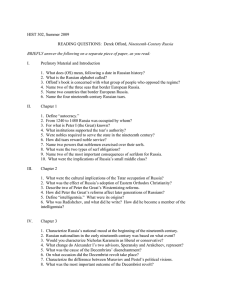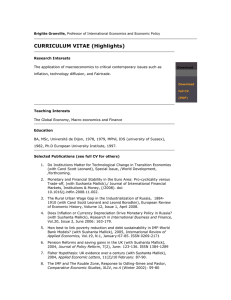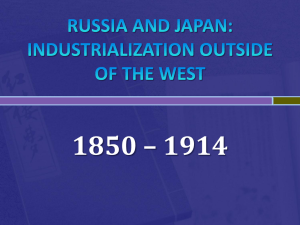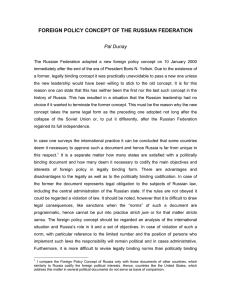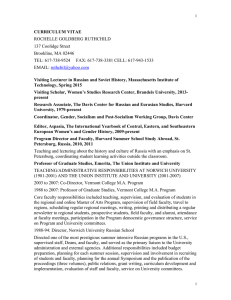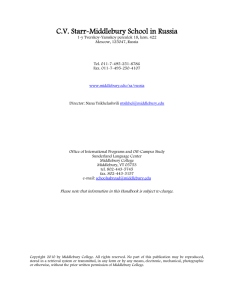DISCONTENT UNDER THE TSAR – Document Based Questions ___ 6
advertisement
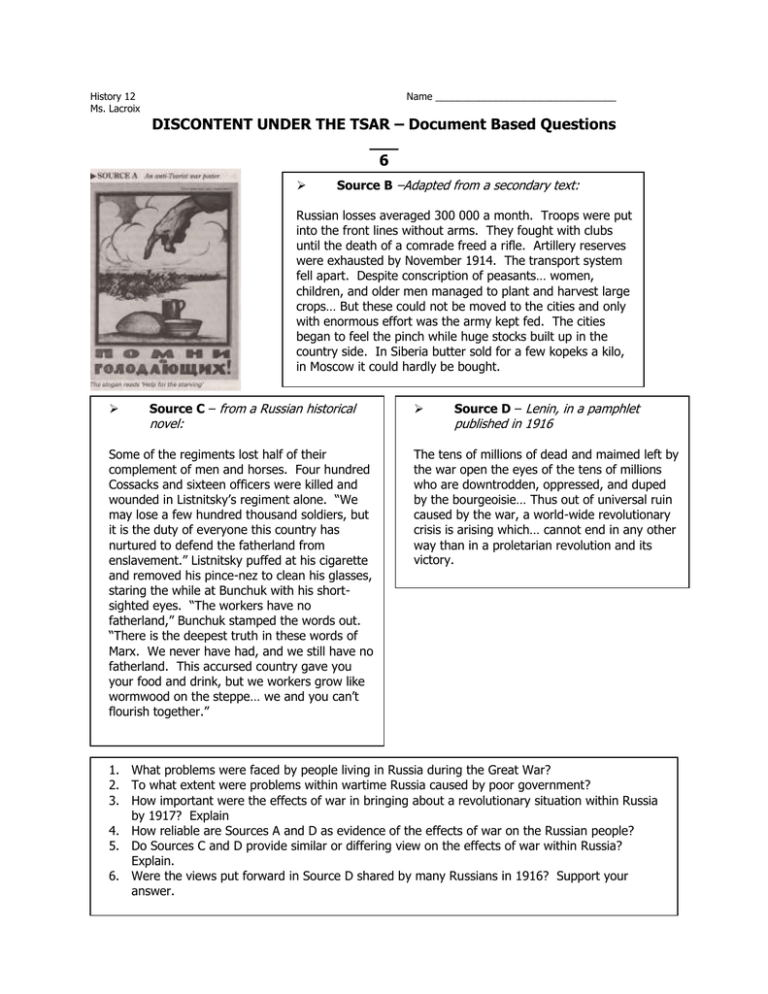
History 12 Ms. Lacroix Name _________________________________ DISCONTENT UNDER THE TSAR – Document Based Questions ___ 6 Source B –Adapted from a secondary text: Russian losses averaged 300 000 a month. Troops were put into the front lines without arms. They fought with clubs until the death of a comrade freed a rifle. Artillery reserves were exhausted by November 1914. The transport system fell apart. Despite conscription of peasants… women, children, and older men managed to plant and harvest large crops… But these could not be moved to the cities and only with enormous effort was the army kept fed. The cities began to feel the pinch while huge stocks built up in the country side. In Siberia butter sold for a few kopeks a kilo, in Moscow it could hardly be bought. Source C – from a Russian historical novel: Some of the regiments lost half of their complement of men and horses. Four hundred Cossacks and sixteen officers were killed and wounded in Listnitsky’s regiment alone. “We may lose a few hundred thousand soldiers, but it is the duty of everyone this country has nurtured to defend the fatherland from enslavement.” Listnitsky puffed at his cigarette and removed his pince-nez to clean his glasses, staring the while at Bunchuk with his shortsighted eyes. “The workers have no fatherland,” Bunchuk stamped the words out. “There is the deepest truth in these words of Marx. We never have had, and we still have no fatherland. This accursed country gave you your food and drink, but we workers grow like wormwood on the steppe… we and you can’t flourish together.” Source D – Lenin, in a pamphlet published in 1916 The tens of millions of dead and maimed left by the war open the eyes of the tens of millions who are downtrodden, oppressed, and duped by the bourgeoisie… Thus out of universal ruin caused by the war, a world-wide revolutionary crisis is arising which… cannot end in any other way than in a proletarian revolution and its victory. 1. What problems were faced by people living in Russia during the Great War? 2. To what extent were problems within wartime Russia caused by poor government? 3. How important were the effects of war in bringing about a revolutionary situation within Russia by 1917? Explain 4. How reliable are Sources A and D as evidence of the effects of war on the Russian people? 5. Do Sources C and D provide similar or differing view on the effects of war within Russia? Explain. 6. Were the views put forward in Source D shared by many Russians in 1916? Support your answer.

